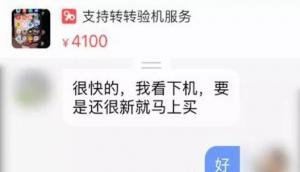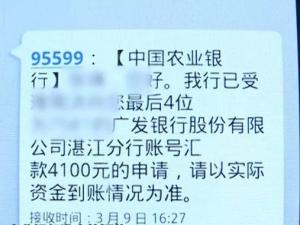Everyone knows that online payments have a function of delayed payment.
Thich provides a time buffer for both parties and is meant to help avoid telecom fraud to a certain extent.

However, as with any technology, there are advantages and disadvantages. Subsequently, the delayed feature may also be used by fraudsters.
Mr. Feng, in Jiangmen, Guangdong province, is selling an iPhone X online for 7,100rmb. One day, Feng receives a call from a man interested in buying his iPhone X. After they negotiate over the phone, the two agree to meet in a public area for the sale.
Upon meeting, the buyer checks the phone before purchasing. However, he didn’t have cash on him so he asks if transferring online is okay.
Mr. Feng’s phone did not show complete payment information, but the seller pointed out the “payment will be made in two hours”, the delay of transfer feature. Feng thinks nothing of it, takes a photo of the buyer’s ID card and leaves.
Two hours later, Feng receives a message that the transfer has been canceled.
Immediately, Mr. Feng calls the police for help. Luckily, based on the information he was able to provide, the man was arrested and charged.
Sadly, this is not the first time this has happened, nor will it be the last.
A similar story in Qingyuan happened recently with Mr. Zhang selling his mobile phone for 4,100rmb.

On March 9, a buyer contacted Mr. Zhang and they agree to meet, again, in a public area.
Upon arrival, the buyer claimed he had no money in his WeChat Wallet or Alipay account and asked to transfer via bank card.
Later, Mr. Zhang’s cellphone received a text message from his bank notifying him of payment of 4,100rmb.

He never would’ve even thought that the money was not credited to his account. Once he realized the money had not actually gone in, he first tried to contact the buyer. After many failed attempts he reached out to the police for help.
After the investigation, they found that the buyer had used the delay payment feature allowing him to cancel the payment within 24 hours.